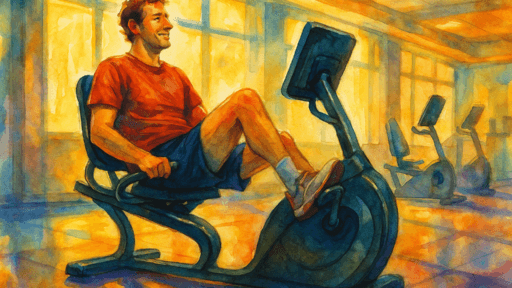“People are illogical, unreasonable, and self-centered. Love them anyway.”
Kent M. Keith
When I was in my early twenties, I bought a leather jacket. Not just any leather jacket—this one was supposed to transform me into a rock star. I imagined stepping out, instantly cooler, with a soundtrack of guitar riffs following me everywhere I went.
The price tag suggested it had mystical powers, and I convinced myself it was an investment in my future as someone who people would whisper about in coffee shops: “Is that guy in a band, or is he just really into motorcycles?”
The very first time I wore it, I noticed something was off. A few hours in, I felt a strange tug at my side, only to look down and realize the sleeve was coming apart at the seams. That was the moment I learned the universe loves to laugh at our plans.
The jacket didn’t turn me into a rock star—it barely survived a day. But it taught me that life’s plans, much like that jacket, often unravel in the most unexpected ways.
The Paradoxical Commandments
And that brings us to the Paradoxical Commandments. Created by Kent M. Keith in 1968, these ten simple statements reflect the messy, often contradictory nature of life. They act as reminders that even when things don’t go as planned—and let’s face it, they rarely do—it’s important to stick to your principles. The Paradoxical Commandments capture the essence of how to keep going in a world that’s sometimes indifferent, unreasonable, or just plain absurd. They tell us that while the world may not always reward our efforts, it’s worth making them anyway.
So, in the spirit of embracing life’s unraveling seams, let’s take a look at these commandments one by one.
People are illogical, unreasonable, and self-centered. Love them anyway.
Imagine waiting in line at the grocery store, already frustrated that the guy in front of you is arguing with the cashier about expired coupons. Now add in the fact that he’s also loudly chomping on gum, and suddenly you’re living in a personal hellscape.
People, more often than not, are maddening. They’ll cut you off in traffic, misuse apostrophes, and tell you they “literally died” when they clearly did not. Yet, somehow, despite the illogical and unreasonable behaviors—I believe the only, best option is to love them.
Why? Because hating everyone for their quirks is exhausting. Love is the only thing that makes all the nonsense bearable.
If you do good, people will accuse you of selfish ulterior motives. Do good anyway.
No good deed goes unpunished, right? You donate to charity, and someone rolls their eyes and mutters something about virtue signaling. You help a friend move, and they assume you’ll ask for help with something bigger later.
But here’s the kicker: the act of doing good isn’t about proving anything to anyone else. It’s about making peace with the person you are when no one’s watching.
So even if the world is skeptical of your kindness, keep doing good, if only to shut up that nagging voice in your head that asks if you could be doing more.
If you are successful, you win false friends and true enemies. Succeed anyway.
Success has a funny way of attracting people, like mosquitoes to a porch light. Some are drawn in by your glow, while others buzz around hoping to get something from it. But the best part of success? It shines a spotlight on the people who were always there, way before any of the applause started. They’re the ones who helped you up when things were tough and never kept score when you stumbled.
Sure, new opportunities and relationships will pop up. Some will be great, others will be… well, the kind you’ll want to forget. But the real trick is to keep trusting the people and the values that got you to where you are. They’re your compass, keeping you grounded while you’re off navigating whatever wild adventure success throws your way.
So, succeed not for the shiny new faces, but for the ones who’ve always been in your corner—and for yourself, of course, because you’ve earned it.
The good you do today will be forgotten tomorrow. Do good anyway.
You stayed up all night working on that project, went the extra mile, and… crickets. Not even a thank you. But here’s the thing about doing good: it’s often a thankless endeavor. That doesn’t mean it’s worthless.
The real value lies in the act itself, not the recognition. Doing good is its own reward.
It’s in the late nights, the small efforts no one sees, and the quiet satisfaction of knowing you did the right thing. Sometimes, no one will notice, and that’s okay. The point isn’t to be noticed. The journey itself, the act of doing good, is what matters. And if that’s all you take away from it, you’ve already won.
Honesty and frankness make you vulnerable. Be honest and frank anyway.
There’s nothing quite like laying your soul bare and immediately wishing you hadn’t. You tell your boss you need to scale back because you’re burnt out, and now every interaction feels like they’re evaluating whether you’re “mentally stable.”
But vulnerability is the ultimate flex. It’s a muscle that, when exercised, makes you stronger, even when it feels like it’s exposing all your weak spots. In a world of carefully curated Instagram posts and diplomatic emails, being honest feels like showing up to a black-tie event in your pajamas—but it’s worth it.
The biggest men and women with the biggest ideas can be shot down by the smallest men and women with the smallest minds. Think big anyway.
If I had a nickel for every time someone with a “better” idea tried to rain on my parade, I could probably buy another ill-fated leather jacket. The naysayers are inevitable. The louder you think, the more they’ll try to turn down the volume.
But here’s the trick: those who shoot down ideas usually do so from a place of insecurity. They aren’t as big as their ideas, and that’s why they’re threatened by yours.
So think big. So big that the critics have no choice but to keep their complaints to a dull murmur in the background of your success.
People favor underdogs but follow only top dogs. Fight for a few underdogs anyway.
The world loves a good underdog story—until it’s time to pick a side, and suddenly everyone’s following the top dog. But here’s the thing: the underdogs, the ones without the loudest voices or the flashiest titles, they’re the ones who actually need you. It’s easy to stand by the winners, but there’s something far more rewarding about speaking up for those who can’t shout loud enough to be heard.
Fighting for the voiceless isn’t glamorous, but it’s the right thing to do. Those who don’t have the power, the influence, or the connections deserve someone in their corner. And if you can be that someone, you’re doing something far more important than just riding the coattails of the successful. You’re giving a hand to those who need it most, and in the end, that’s a victory worth celebrating—even if no one else notices.
What you spend years building may be destroyed overnight. Build anyway.
You pour your heart into a project, a relationship, or a really elaborate Lego set, only for it to come crashing down in the blink of an eye. Years of work gone. But—and this is the tricky part—you keep building. Because it’s never about the final product, it’s about what you learn along the way.
Yes, that sounds like something you’d find on an inspirational office poster, but it’s true. The process is where the magic happens. Keep building, even if the world insists on knocking over your blocks.
People really need help but may attack you if you do help them. Help people anyway.
Nothing says gratitude like biting the hand that feeds you, right? People often lash out at those who try to help, usually because they’re embarrassed, afraid, or too stubborn to admit they need a hand. But that’s no reason to stop offering your support.
Help isn’t about expecting praise or pats on the back. It’s about extending your hand, knowing full well it might get slapped away—and doing it again anyway.
Give the world the best you have and you’ll get kicked in the teeth. Give the world the best you have anyway.
You could give a TED Talk, cure a disease, and solve world hunger, and someone will still critique your hairstyle or suggest you should “smile more.” The world has a way of knocking down even the best efforts, but that doesn’t mean you stop giving your all.
Life isn’t a tally of wins and losses—it’s a game where the only rule is to keep playing. Give the world your best, even if it seems like the world doesn’t deserve it. You deserve to give it.





